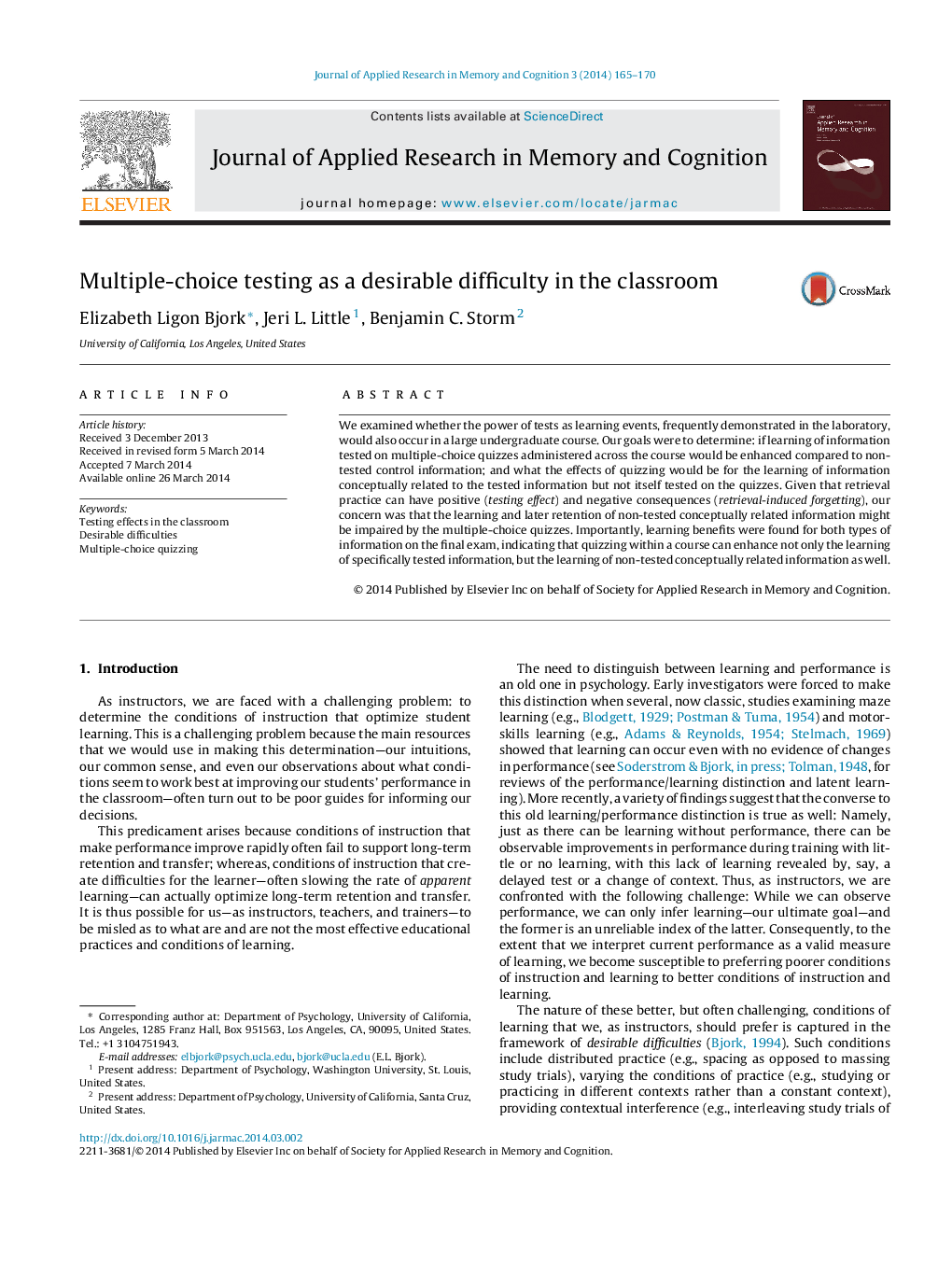| Article ID | Journal | Published Year | Pages | File Type |
|---|---|---|---|---|
| 881713 | Journal of Applied Research in Memory and Cognition | 2014 | 6 Pages |
•Students in a large multi-sectioned undergraduate course were given multiple-choice quizzes across the duration of the course.•Information tested on the quizzes was learned better, as reflected by final exam performance, than information not quizzed.•Furthermore, information related to that tested on the quizzes—but not itself tested on the quizzes—was also learned better, as reflected by final exam performance.
We examined whether the power of tests as learning events, frequently demonstrated in the laboratory, would also occur in a large undergraduate course. Our goals were to determine: if learning of information tested on multiple-choice quizzes administered across the course would be enhanced compared to non-tested control information; and what the effects of quizzing would be for the learning of information conceptually related to the tested information but not itself tested on the quizzes. Given that retrieval practice can have positive (testing effect) and negative consequences (retrieval-induced forgetting), our concern was that the learning and later retention of non-tested conceptually related information might be impaired by the multiple-choice quizzes. Importantly, learning benefits were found for both types of information on the final exam, indicating that quizzing within a course can enhance not only the learning of specifically tested information, but the learning of non-tested conceptually related information as well.
